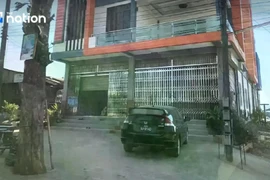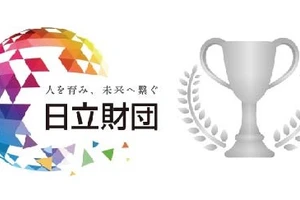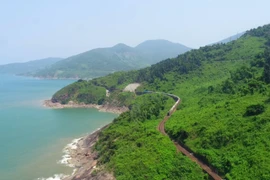Bangkok (VNA) - Thailand’s government is considering easing personal income tax rules for individuals’ overseas income to encourage the remittance of those funds back into the country, a senior official has said.
The Ministry of Finance is mulling amending tax laws on income from foreign investments to create a more favourable environment for investors and lure Thais to repatriate their earnings, Deputy Prime Minister and Minister of Finance Pichai Chunhavajira said on February 13.
Thailand has recently revised its tax laws to align with the Organisation for Economic Cooperation and Development (OECD)'s regulations.
Previously, if a Thai taxpayer brought foreign investment income into the country within the same tax year it was earned, it is subject to income tax. If taxpayers transferred the money in a subsequent tax year, it will not be taxed.
However, last year the ministry amended this regulation, making foreign income taxable regardless of when it is brought into Thailand.
As the global economic landscape has changed, some countries no longer adhere to the original OECD rules, which has necessitated an adjustment to Thailand’s approach, Pichai said.
He also highlighted the fact that while some Thai citizens invest abroad, the amount repatriated is significantly lower than the amount that flows out. As such, the Ministry of Finance wants to rectify this and encourage citizens to bring money back home./.
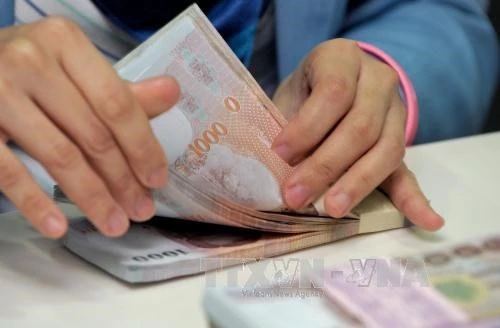
See more
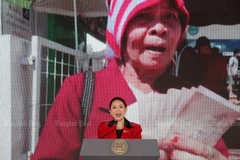
WB sees Thai fiscal risks mounting due to spending surge
Pro-growth consumption-stimulating measures such as the digital wallet have added to fiscal pressures in Thailand, the World Bank said.

Cambodia ready to boost rice exports to Philippines
The Philippines will import 4.8 million tonnes of rice this year, according to the country's Bureau of Plant Industry.

Malaysia expected to remain magnet for FDI
A confluence of factors, including its significance in the global tech supply chain, friendly FDI policies, existing industry clusters, a skilled labour force and extensive free trade agreements (FTAs), makes Malaysia an outperformer in the region

Malaysia takes the lead in data centre development
Malaysia is making efforts to align with the global trend towards digitalisation, which is driving demand for data centres, cloud computing, blockchain and artificial intelligence (AI).
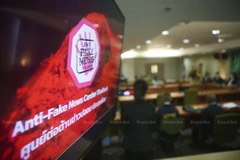
Thailand to use AI to prevent fake news
The Thai Ministry of Digital Economy and Society said it is cooperating with over 300 agencies to eradicate fake news while looking to use articial intelligence (AI) to verify news reports.
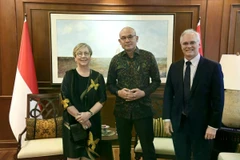
Indonesia eyes vaccine independence through collaboration with CEPI
Indonesia is advancing its efforts to realise national vaccine independence through a collaboration with the Coalition for Epidemic Preparedness Innovations (CEPI).
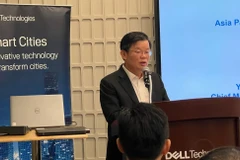
Malaysia needs more funding for semiconductor sector
Malaysia needs more funding for the implementation of the National Semiconductor Strategy (NSS) to enhance its competitiveness with neighbouring countries, said Penang Chief Minister Chow Kon Yeow.

Nissan to close factory in Thailand
The company expects to cut or transfer about 1,000 jobs in Thailand and stated that reducing operating expenses by around 400 billion JPY (2.62 billion USD) in the 2026 fiscal year will help maintain a stable operating profit margin of 4%.
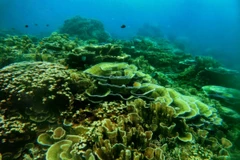
Indonesia establishes two more maritime conservation areas
With the addition of two conservation areas, Indonesia's total marine conservation area has surpassed 30 million hectares, almost reaching the national 2030 target of 32.5 million hectares.
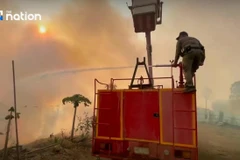
Wildfires rage northern Thailand
The North of Thailand is grappling with a surge in wildfires, with 401 hotspots detected across 17 provinces, the Region 3 Forest Fire Control Centre said on February 13.

Indonesia international motor show kicks off
Automobile and motorcycle manufacturers are introducing advanced technologies and the latest products at the show.
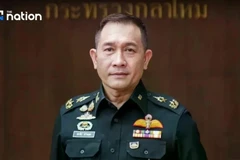
Thailand considers building wall along border with Cambodia
The proposal was jointly submitted by police, army officers, and the Interior Ministry as a measure to strengthen efforts against human and drug trafficking along the Thailand-Cambodia border.
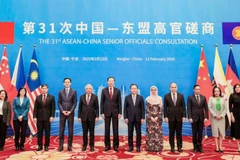
China proposes new initiatives of cooperation with ASEAN
The Chinese side reaffirmed its support for ASEAN's community-building efforts and the bloc’s central role in regional affairs, emphasising the priority China places on its relationship with ASEAN as part of its neighbourhood diplomacy.
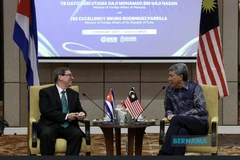
Malaysia, Cuba strengthen bilateral ties
Malaysian Foreign Minister Seri Mohamad Hasan met with his Cuban counterpart Bruno Eduardo Rodriguez Parrilla in Kuala Lumpur on February 13, where discussions focused on enhancing collaboration in trade, health care, education and tourism.
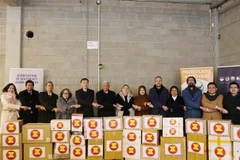
ASEAN Committee continues to offer assistance to the needy in Czech Republic
This year marks the fifth consecutive year that the ASEAN Committee in Prague has contributed food donations to support disadvantaged communities.

Indonesia raises volcano alert to highest level
Mount Lewotobi Laki-Laki, which stands 1,703 meters tall, has erupted multiple times in recent months. In November, a series of eruptions killed nine people, forced thousands to flee, and disrupted international flights to Bali.

Indonesia expects more Apple supplier to build facilities in Riau Islands: minister
Indonesia is looking to attract more Apple suppliers, Investment and Downstream Minister Rosan Roeslani said, claiming that several new suppliers have proposed investing in the country.
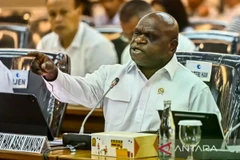
Indonesia to establish reconciliation village in conflict areas
Minister of HAM Natalius Pigai said that the development of such village demonstrates the government's commitment to fostering peace and justice, particularly in conflict-affected areas.
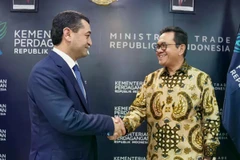
Indonesia to launch preferential trade agreement negotiations with Uzbekistan
The negotiations are part of the concrete steps of the Ministry of Trade’s priority programme to expand the export market.
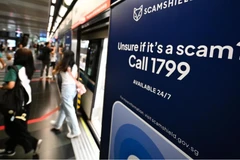
Over 470 investment scam cases reported in Singapore so far this year
Victims were targeted through social media platforms, and messaging and dating applications, police said.
